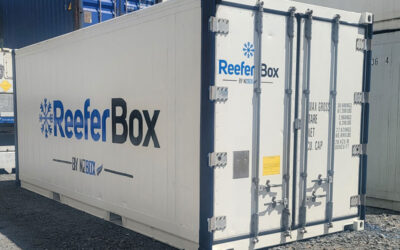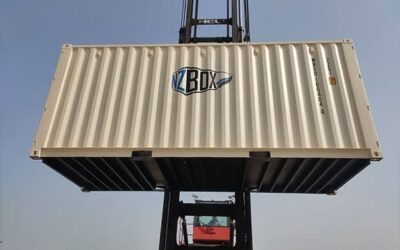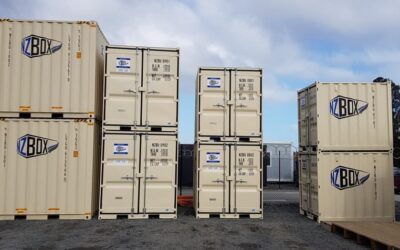Shipping container businesses have taken the entrepreneurial world by storm, offering innovative, environmentally conscious solutions to the age-old challenge of starting a new venture. The year 2024 holds the promise of new opportunities for entrepreneurs, startups, and e-commerce businesses to tap into the ever-evolving landscape of business ideas. With a focus on sustainability and adaptability, here are six shipping container business concepts that are not only capturing imaginations but are also poised for success in the coming year.
Introduction
The use of repurposed shipping containers as business structures has gained significant traction in recent years here in New Zealand, resonating with a consumer base increasingly interested in eco-friendly and unconventional businesses. What began as a response to the global re-purposing movement has evolved into a symbol of creative enterprise and eco-conscious innovation. The appeal lies in their mobility, cost-effectiveness, and, importantly, the narrative of transforming something utilitarian into a hub of creativity and commerce. With a ready supply of shipping containers for sale or for hire in New Zealand, the opportunities for entrepreneurs and established businesses are nearly endless.
1. Coffee Shops and Cafés
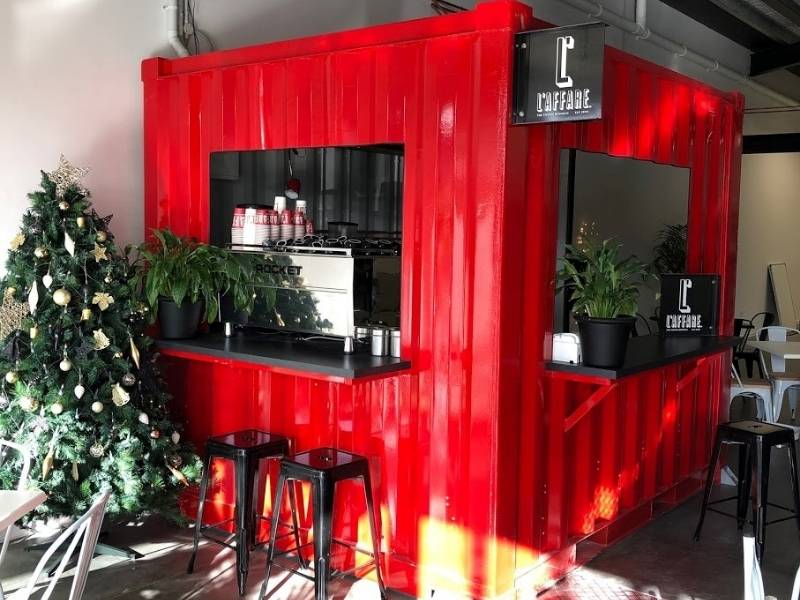
Unique Design and Mobility
Shipping container coffee shops are more than just an aesthetic fad – they marry the timeless allure of the caffeine culture with a mobile, robust architecture. These cafes, usually equipped with modern espresso machines and charming patios, can relocate to follow the flow of patrons, such as to community events, sports gatherings, or festivals. The on-trend design emphasises the industrial chic that has become a signature look for urban businesses.
Eco-friendly Appeal
Beyond their stylish facades, container cafes are a beacon for the sustainability-minded aficionados of the beverage. Many are LEED-certified, and some incorporate green roof technology into their structures, reducing heat islands and providing natural insulation. Solar panels, repurposed furniture, and re-useable utensils are common fixtures, further cementing their green credentials.
2. Pop-Up Retail Stores
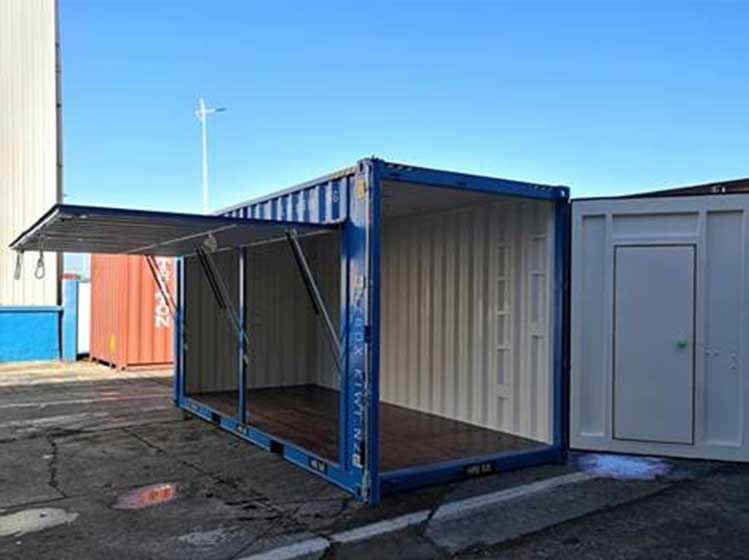
Cost-Effectiveness and Flexibility
The cost of setting up a brick-and-mortar store has long been a barrier to entry for small businesses. Shipping container retail spaces offer a conversely affordable solution, with the added benefit of flexibility. Entrepreneurs can test their products in various locations before finding the right fit, helping them to understand customer behaviours and zoning in on their ideal market.
Flexibility in Locations
Pop-up stores have seen an uptick in popularity, especially as the approaches to shopping become more exciting and spontaneous. By exploring different hotspots, from bustling urban centres to serene beach fronts, these businesses can tap into micro-markets that align with specific consumer behaviours, all while projecting an image of forward-thinking dynamism.
3. Urban Farms and Gardening Centres
Utilising Vertical Space
Limited space in urban areas is a common hurdle for aspiring horticulturists. Containers provide a creative solution, stacking neatly to create vertical farms or mini gardens. Businesses like these supply communities with fresh produce, herbs, and flourishing gardens that add a pop of green to cityscapes while drastically reducing transportation emissions normally associated with food distribution.
Sustainable Agriculture Practices
With a focus on sustainability, container farms can implement hydroponics and aeroponics, conserving water and maximising yield. In many cases, vertical farms reduce water consumption by up to 90%, tapping into the growing consumer interest in circular economy practices and fresher, more locally sourced produce.
4. Co-Working Spaces
Affordable Workspace Solutions
The rise of remote work has led to an unprecedented demand for alternative working environments. Shipping containers, repurposed into compact co-working offices, provide a cost-effective oasis for the digital nomad, freelancer, or start-up team. These spaces are more than utilitarian; they often boast vibrant designs and foster a sense of community that can be hard to find in traditional offices.
Community-Building Benefits
For many small businesses and entrepreneurs, the networking and support available within a shared work environment can be just as valuable as the space itself. Co-working container offices often host community events and workshops, engendering a collaborative atmosphere that can be instrumental in the success of the businesses operating from within.
5. Mobile Barbershops or Salons

Convenience for Clients
In a fast-paced world, convenience is key. Mobile barbershops and salons cater to clients’ busy schedules, bringing the stylist to the customer. These containers are fully equipped, offering a range of services from haircuts to manicures, often at the customer’s doorstep, at the workplace, or at events. The upscale, retro-modern design usually found inside these mobile grooming units adds a touch of luxury to the convenience package.
Minimal Setup Costs
For budding stylists or beauty enthusiasts looking to venture into their own business, the costs of a mobile salon can be considerably less than a traditional shop setup. The ease of personalisation within the compact space allows for a unique branding that can easily become a recognisable fixture within a community or at events.
6. Art Galleries or Exhibition Spaces
Creative Use of Compact Spaces
The intimacy of a container-sized gallery can actually be a boon to the display of art. The scale of these spaces fosters a more direct connection between viewers and the artwork. Many artists and curators are leveraging shipping containers for solo shows, collaborative exhibitions, and showcase events, resulting in a curated experience for art enthusiasts.
Attracting Niche Audiences
The portability of container galleries allows them to move with the art scene, catering to the rise of pop-up events in cultural circles. They can also be stationed in areas with less traditional access to fine art, supporting a growing appreciation for art outside of the typical gallery setting.
Capitalising on New Zealand’s Landscape
Whilst the ideas above are ubiquitous to locations around the world, New Zealand and our unique landscape offers equally unique opportunities for businesses to tap into the shipping container market. Here are a few New Zealand-specific ideas:
Eco-tourism Pods
New Zealand’s stunning scenery is a major tourist draw. Consider converting containers into unique, eco-friendly pods for glamping experiences. Adventure tourism is a booming industry, with statistics showing a 12% growth in visitor expenditure in 2022. These pods offer a comfortable and low-impact alternative to traditional accommodation, blending nature with modern amenities.
Mobile Wineries/Breweries
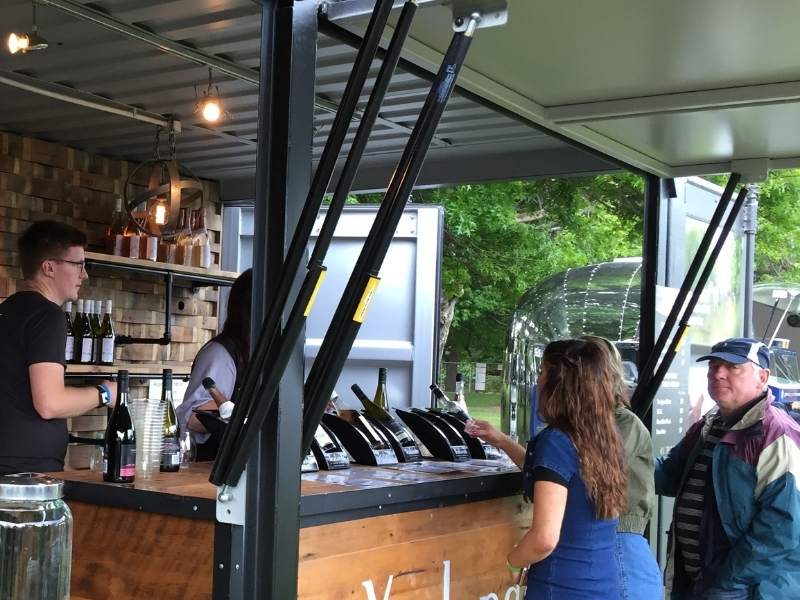
The rise of craft beverages in New Zealand is undeniable. Utilise converted containers to create mobile wineries or breweries. This allows for pop-up events at farmers’ markets, vineyards, or even music festivals. The Brewers Association of New Zealand reports a 4% growth in craft breweries year-on-year. This mobility offers greater market reach and caters to the growing trend of on-site experiences.
Containerised Co-working Spaces
The rise of remote work creates a demand for flexible workspaces. Consider converting containers into individual work pods on a rental basis. This caters to freelancers, remote workers, or even companies needing temporary office space. According to a National Insurance Institute survey in Israel (comparable data for NZ isn’t readily available), 80% of freelancers would be interested in co-working spaces if readily available, highlighting the potential demand.
Mobile Medical Clinics
Shipping containers can be adapted into portable medical clinics, offering healthcare services in remote areas or underserved communities. This can be particularly beneficial for seasonal needs or in regions with limited medical infrastructure.
Things to Consider Beyond the Container
- Permits and Regulations: Building code compliance and obtaining necessary permits are crucial for any container-based business. Ensure you understand the local regulations to avoid delays or roadblocks.
- Customisations: While the modular nature of containers is a plus, extensive modifications might be needed depending on your business concept. Factor in the cost of insulation, plumbing, and electrical work.
- Sustainability: Source used containers whenever possible and prioritise eco-friendly modifications like solar panels or water-saving fixtures.
By thinking creatively and addressing these considerations, you can leverage the unique potential of shipping containers to establish a successful business in New Zealand. Remember, the key is to identify a gap in the market and tailor your concept to cater to the specific needs of your target audience.
Conclusion
Shipping container business ideas present a vast, untapped potential for creativity and commerce. With a focus on sustainability, mobility, and community, these enterprises promise to redefine the business landscape in 2024 and encourage entrepreneurs to explore the boundaries of their business acumen. Whether charting new territories in urban farming or bringing traditional grooming to new frontiers, the adaptability of these containers is a testament to the boundless opportunities awaiting those who dare to think outside the box – or should we say, within it.

